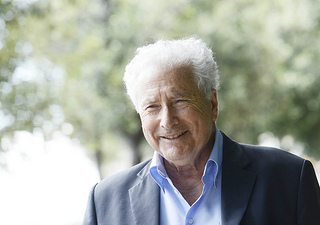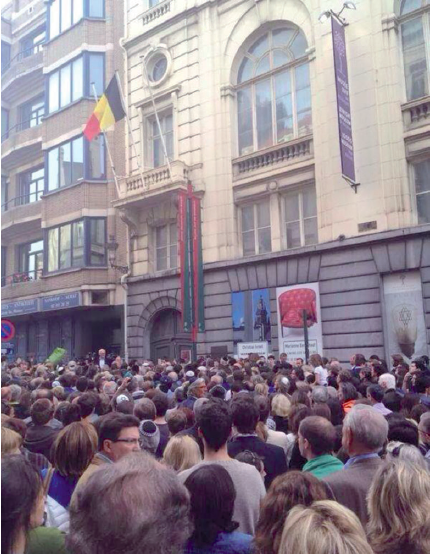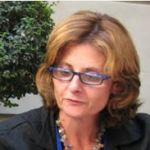
 |
| A Fight for Freedom |
 By Renzo Gattegna “Freedom is not in a stable right, but something that needs to be conquered every day. It is a right that must be cultivated, protected, defended from the threats of those who want to impose models not compatible with the values of our democracies,” said the President of the Union of Italian Jewish Communities (UCEI) Renzo Gattegna in a message sent on Passover's eve. “The events of these past months, marked by many deaths and sufferings, have brought to the attention of the public opinion that there is an ongoing attack against fundamental rights which affects or may affect indiscriminately everyone. So we need to speak and act clearly and to be ambassadors of light, vitality and progress and involve the whole society so that nobody can be or feel isolated. This challenge becomes even more powerful in these days of celebration,” Gattegna added. The President of Italian Jews considers Passover the most relevant moment of the year for reflecting on the meaning of freedom, and on the extraordinary impact that freedom has in everyone's lives. “but also the sacrifices that are required to achieve it.” *Renzo Gattegna is the President of the Union of the Italian Jewish Communities |
 |
| An Italian Champion |
| By Daniela
Gross Gino Bartali was the most famous and beloved Italian cyclist before World War II. His athletic victories are renowned: he won the Giro d’Italia three times, and the Tour de France twice. Until some years ago, however, the big effort he put in helping Jews against racial persecutions was less known. The movie “My Italian Secret: The Forgotten Heroes,” directed by Oren Jacoby and now in theaters in the US, tells his touching story, alongside the stories of other gentiles who helped Jews during that awful period. As Ben Kenigsberg wrote in the New York Times, the movie is especially focused on the period following the occupation by German troops, and “…periodically returns to the deeds of Gino Bartali (…), a Tour del France champion regarded as an inspiration by the Fascist government. As his son Andrea explains, Mr. Bartali also secretly helped to save lives by transporting fake identification papers in his bicycle frame”. Bartali never talked about his commitment to Jews. His role emerged recently, when a witness told Pagine Ebraiche that he was hidden, along with his family, in Bartali’s cellar. Thanks to this and other testimonies, Gino Bartali in 2013 was finally recognized by Yad Vashem Righteous among Nation. His story, notes Kenigsberg, “provides a reasonable primer on Italy’s complicated history with the Holocaust and the Italian resistance.” Italian Jews’ history is really complicated, for it its continuous balancing between identity, roots, citizenship and assimilation. But the story of the champion Gino Bartali is an excellent place to start to know it. |






This newsletter is published under difficult conditions. The editors of this newsletter are Italian journalists whose native language is Italian. They are willing to offer their energy and their skills to give international readers the opportunity of learning more about the Italian Jewish world, its values, its culture and its traditions.
In spite of all our efforts to avoid this, readers may find an occasional language mistake. We count on your understanding and on your help and advice to correct these mistakes and improve our publication.
Pagine Ebraiche International Edition is published by the Union of Italian Jewish Communities (UCEI). UCEI publications encourage an understanding of the Jewish world and the debate within it. The articles and opinions published by Pagine Ebraiche International Edition, unless expressly stated otherwise, cannot be interpreted as the official position of UCEI, but only as the self-expression of the people who sign them, offering their comments to UCEI publications. Readers who are interested in making their own contribution should email us at desk@ucei.it
You received this newsletter because you authorized UCEI to contact you. If you would like to remove your email address from our list, or if you would like to subscribe using a new email address, please send a blank email to desk@ucei.it stating "unsubscribe" or "subscribe" in the subject field.
© UCEI - All rights reserved - The articles may only be reproduced after obtaining the written permission of the editor-in-chief. Pagine Ebraiche - Reg Rome Court 199/2009 – Editor in Chief: Guido Vitale - Managing Editor: Daniela Gross.
Special thanks to: Francesco Moises Bassano, Susanna Barki, Amanda Benjamin, Monica Bizzio, Angelica Edna Calò Livne, Eliezer Di Martino, Alain Elkann, Dori Fleekop, Daniela Fubini, Benedetta Guetta, Sarah Kaminski, Daniel Leisawitz, Annette Leckart, Gadi Luzzatto Voghera, Yaakov Mascetti, Francesca Matalon, Jonathan Misrachi, Anna Momigliano, Giovanni Montenero, Elèna Mortara, Sabina Muccigrosso, Lisa Palmieri Billig, Jazmine Pignatello, Shirley Piperno, Giandomenico Pozzi, Daniel Reichel, Colby Robbins, Danielle Rockman, Lindsay Shedlin, Rachel Silvera, Adam Smulevich, Simone Somekh, Rossella Tercatin, Ada Treves, Lauren Waldman, Sahar Zivan.
Questo notiziario è realizzato in condizioni di particolare difficoltà. I redattori di questo notiziario sono giornalisti italiani di madrelingua italiana. Mettono a disposizione le loro energie e le loro competenze per raccontare in lingua inglese l'ebraismo italiano, i suoi valori, la sua cultura e i suoi valori. Nonostante il nostro impegno il lettore potrebbe trovare errori e imperfezioni nell'utilizzo del linguaggio che faremo del nostro meglio per evitare. Contiamo sulla vostra comprensione e soprattutto sul vostro aiuto e sul vostro consiglio per correggere gli errori e migliorare.
Pagine Ebraiche International Edition è una pubblicazione edita dall'Unione delle Comunità Ebraiche Italiane. L'UCEI sviluppa mezzi di comunicazione che incoraggiano la conoscenza e il confronto delle realtà ebraiche. Gli articoli e i commenti pubblicati, a meno che non sia espressamente indicato il contrario, non possono essere intesi come una presa di posizione ufficiale, ma solo come la autonoma espressione delle persone che li firmano e che si sono rese gratuitamente disponibili. Gli utenti che fossero interessati a offrire un proprio contributo possono rivolgersi all'indirizzo desk@ucei.it
Avete ricevuto questo messaggio perché avete trasmesso a Ucei l'autorizzazione a comunicare con voi. Se non desiderate ricevere ulteriori comunicazioni o se volete comunicare un nuovo indirizzo email, scrivete a: desk@ucei.it indicando nell'oggetto del messaggio "cancella" o "modifica".
© UCEI - Tutti i diritti riservati - I testi possono essere riprodotti solo dopo aver ottenuto l'autorizzazione scritta della Direzione. Pagine Ebraiche International Edition - notiziario dell'ebraismo italiano - Reg. Tribunale di Roma 199/2009 - direttore responsabile: Guido Vitale - Coordinamento: Daniela Gross.
Realizzato con il contributo di: Francesco Moises Bassano, Susanna Barki, Amanda Benjamin, Monica Bizzio, Angelica Edna Calò Livne, Eliezer Di Martino, Alain Elkann, Dori Fleekop, Daniela Fubini, Benedetta Guetta, Sarah Kaminski, Daniel Leisawitz, Annette Leckart, Gadi Luzzatto Voghera, Yaakov Mascetti, Francesca Matalon, Jonathan Misrachi, Anna Momigliano, Giovanni Montenero, Elèna Mortara, Sabina Muccigrosso, Lisa Palmieri Billig, Jazmine Pignatello, Shirley Piperno, Giandomenico Pozzi, Daniel Reichel, Colby Robbins, Danielle Rockman, Lindsay Shedlin, Rachel Silvera, Adam Smulevich, Simone Somekh, Rossella Tercatin, Ada Treves, Lauren Waldman, Sahar Zivan.








